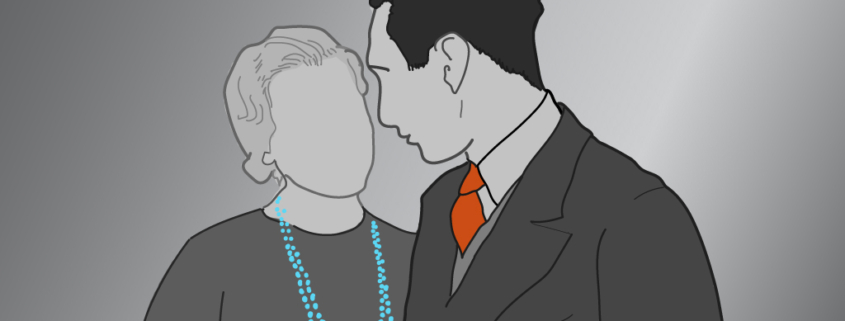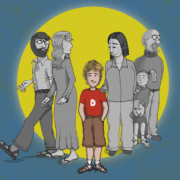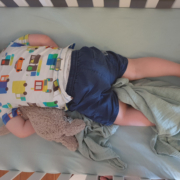Oma Z
It is somewhere in the mid-90s as I visit my grandmother in The Hague. I am in my mid-twenties. Normally the whole family would be there, usually on her birthday. But this is not her birthday, it is just me and her. Her reputation of a divider of daughters, a bitter complainer and a husband divorcer is gone now and it is just us two, in her apartment on the 10th floor of the old people’s flat. Yellow parakeets are flying around her place and her parrot copies some of our words from its cage.
She offers me a cigarette from what looks like a silver mug. I decline, not because I don’t smoke, but because they are ultra-light tasteless cigarettes. My grandmother lights one up. I look at the pictures on top of her TV; standing up, framed, is a picture of my grandmother looking in her twenties I’d say, dressed in a fur coat, stylishly smoking a cigarette. Next to her sits a lightly dressed, handsome man with curly hair who is not my grandfather.
“I’ve always wondered who that was, Oma Z.” – that’s what I call her.
“That was Ernst, the love of my life” she says while puffing out some smoke.
“Who was he?” I ask, thinking: why not my grandfather?
She tells me the story of Ernst and Indonesia, the outbreak of the second world war, that she had already met my grandfather Max but favoured Ernst, who was half Jewish and had some connection with Indonesia, still a Dutch colony at that time, that they moved there, married and had a kid, my aunt Renée, but that the war followed them, that they were incarcerated by the Japanese into a ‘Jappenkamp’ a concentration camp, and that Ernst died there and that my grandmother thought she was protected by guardian angels.
I imagined my young grandmother with a baby at her feet holding the vertical bars from the camp while angels hovering over her.
“Then what happened?” I ask. She continues: “Once the Japanese got defeated and the camp got liberated I went with my young daughter back to Holland. There I reconnected with Max, who never stopped loving me throughout the war and he proposed to me.”
I imagine my grandfather going on to his knee in front of my grandmother who would still wear a fur coat but a child on her lap and a tear in her eye.
“Your grandfather was the hairiest man I have ever seen,” she says, and I think of how many men she must have seen. “He was short and had hair all over his back.”
There is no picture of him in her apartment. In the other room is an oval picture of me where I am about 12 years old, smiling and still tanned from the summer holiday.
“Your grandfather had returned from the war a parentless, broken man as I had returned from Indonesia a widow, that’s how we reunited.”
“Holocaust!” the parrot yells.
“I hope you don’t become a lerner like your grandfather..”, Oma says.
“Lerner? Learner?” I think, “What do you mean?” I ask.
“That’s a Jewish thing where a man is studying all day while his wife works. Max was like that, he studied and studied, mostly biblical stuff. I raised the children.”
She looks at me and lights another cigarette.
“You like to draw and such, comics and all. You clearly have a talent. Just don’t waste it, that’s all I can say. Don’t waste your talent. Otherwise you’ll be sorry for the rest of your life.”
A month later I get a phone call she is dead.
 David Enker
David Enker David Enker
David Enker David Enker
David Enker
 DDavid Enker
DDavid Enker
